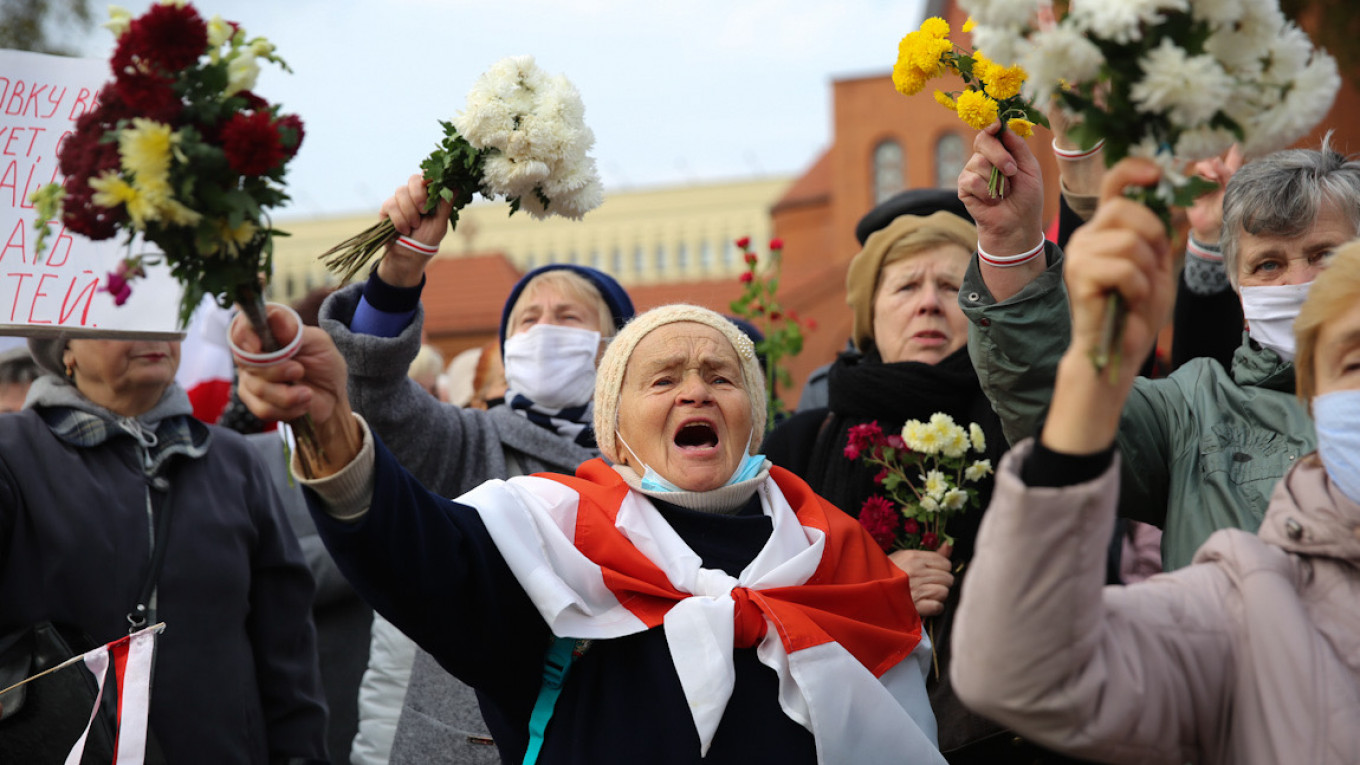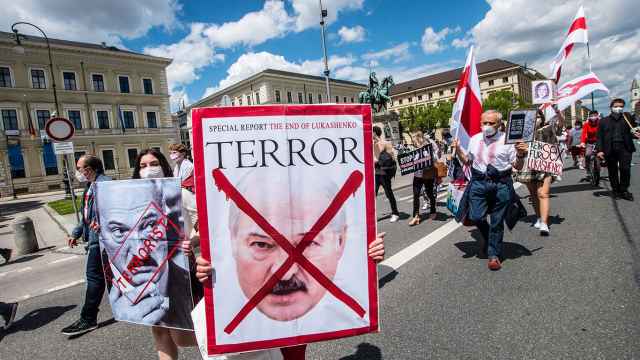Belarus opposition leader Svetlana Tikhanovskaya has called Monday’s general strike aimed at putting pressure on President Alexander Lukashenko a “collective success” and vowed to continue calling for his resignation.
Tikhanovskaya had given Lukashenko until Sunday to quit, halt violence against protesters and release political prisoners, warning he would otherwise face a general strike from Monday. The 66-year-old Lukashenko, accused by the opposition of stealing August polls, ignored the ultimatum and police cracked down on the latest of a series of opposition protests on Sunday.
In a video published on her official Telegram channel Tuesday, Tikhanovskaya thanked the nationwide strike’s participants and called on more supporters to join the disobedience campaign the following day.
“Today was an important day, and I believe it was just the beginning,” Tikhanovskaya said.
Many small businesses, including shops, cafes and online shops, had closed on Monday.
Tikhanovskaya said that workers from major plants including the Grodno Azot chemical plant, the Minsk Automobile Plant and Minsk Tractor Works joined the strike.
Protests were also reported at universities, with students from the Belarus National Technical University and the Belarus State University of Information Technology and Radioelectronics joining marches in central Minsk.
At least 371 strike participants were detained throughout the day, according to the Viasna human rights group.
In her address, Tikhanovskaya called the strike participants “heroes” that stood up for their community and the first day of the general strike a “collective success.”
“Production shops remained at a standstill to put to work the chain of solidarity,” she said.
Lukashenko on Tuesday called the strike "the actions of organized criminal groups with signs of terrorism.” Speaking at the start of a government meeting, he added that some of the protesters had "crossed a red line" and some sought to block railways.
He also called on universities to expel all students who took part in the protests.
Pavel Latushko, a member of the opposition’s Coordination Council that was established to oversee a peaceful transition of power to Tikhanovskaya, echoed that sentiment in an interview with the Current Time broadcaster, saying the strike proves that Belarusians are “aiming for freedom, ready to go till the end.”
Meanwhile, Alexey Dzermant, a political analyst from the Belarusian state-run Institute of Philosophy of the National Academy of Science, said he believes that the opposition’s attempt at a nationwide strike was a failure.
“The number of protests will decrease, while [protesters’] radicalism will continue to grow,” Dzermant told the Echo Moskvy radio station.
The protest movement in Belarus has kept up large demonstrations for more than two months, with tens of thousands taking to the streets every Sunday.
Several people died and thousands were arrested in a post-election crackdown, with harrowing accounts emerging of abuse in jails.
AFP contributed reporting.
A Message from The Moscow Times:
Dear readers,
We are facing unprecedented challenges. Russia's Prosecutor General's Office has designated The Moscow Times as an "undesirable" organization, criminalizing our work and putting our staff at risk of prosecution. This follows our earlier unjust labeling as a "foreign agent."
These actions are direct attempts to silence independent journalism in Russia. The authorities claim our work "discredits the decisions of the Russian leadership." We see things differently: we strive to provide accurate, unbiased reporting on Russia.
We, the journalists of The Moscow Times, refuse to be silenced. But to continue our work, we need your help.
Your support, no matter how small, makes a world of difference. If you can, please support us monthly starting from just $2. It's quick to set up, and every contribution makes a significant impact.
By supporting The Moscow Times, you're defending open, independent journalism in the face of repression. Thank you for standing with us.
Remind me later.






